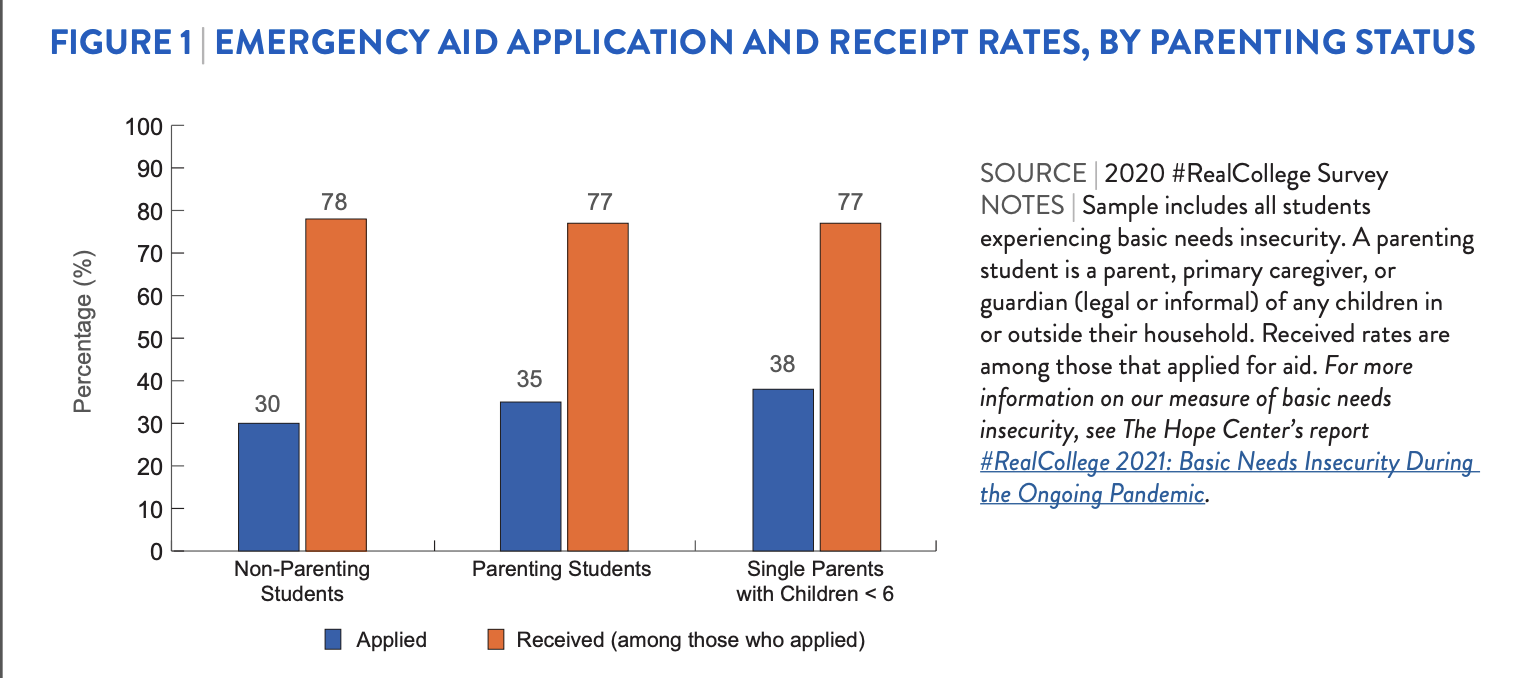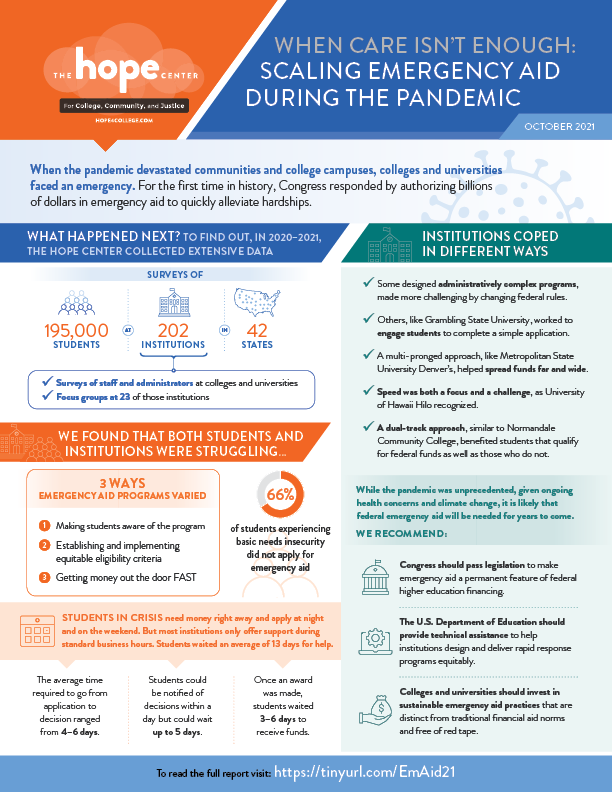Document Tag: emergency aid
Faculty-Run Emergency Aid for Students (ND)
Note: This documented is now outdated and provided for historical purposes only. Please see Believe in Students (believeinstudents.org) for more information on running a FAST Fund.
Basic Needs Insecurity at Historically Black Colleges and Universities A #RealCollegeHBCU Report (2022)
Historically Black Colleges and Universities (HBCUs) were established primarily in the post-Civil War era to meet the educational needs of Black Americans. They provide pathways to upward social mobility and have a long-standing commitment to promoting both academic success and students’ health and well-being. But persistent funding inequities at both the state and federal levels actively undermine those commitments and leave the sector particularly vulnerable during the coronavirus (COVID-19) pandemic.
This report, a collaboration between The Hope Center and the Center for the Study of HBCUs, uses data from the #RealCollege Survey to examine the overlapping challenges affecting students attending HBCUs during fall 2020. In total, nearly 5,000 students from 14 public and private four-year HBCUs responded to the survey.
When Care Isn’t Enough: Scaling Emergency Aid During the COVID-19 Pandemic (2021)
When the pandemic devastated communities and college campuses, colleges and universities faced an emergency. For the first time in history, Congress responded by authorizing billions of dollars in emergency aid to quickly alleviate hardships.
This report shows how colleges and universities met the challenge of emergency aid during the pandemic, drawing on a year of surveys and focus groups, fielded and conducted by The Hope Center and DVP-Praxis, that reflect the views of institutional leaders and students from coast to coast. The results offer valuable insights that should shape the future of emergency aid and student support. While the onset of the pandemic was unprecedented, its ongoing health concerns and the looming consequences of climate change ensure that knowing how to deliver emergency aid at scale will be essential to the well-being of future students. With these lessons in mind, we can all be better prepared and ready to respond.



